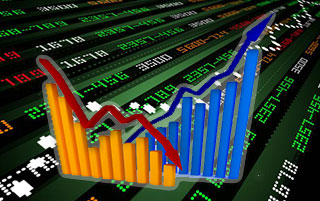Markets have opened the week with losses, mainly due to the fact that the Fed reaffirmed its determination to put an end to the era of cheap money. To many, it may seem that a 25 basis point hike in interest rates, is a moderate hike. In absolute terms, that would be right, but in relative terms it is not. When the Fed goes ahead with the first planned rate hike in 2016, interest rates will go from 0.5% to 0.75%, which represents a 50% increase from current levels. This hike in relative terms, will make money 50% more expensive to come by, which might have a sizeable psychological effect if not a significant economic one.
Investors are responding by pulling their cheap money out of the stock market, expecting to get a better rate of return on fixed interest assets. As a result the markets closed slightly down on Monday, as key commodities such as oil also receded. The question now is if the rate of increase will also have a stifling effect on an already fragile economy.
The US Dollar could appreciate to appoint in which many US exports will lose enough market traction, to hamper job growth at home. This added to tightening credit markets, will test the resilience of the recovery from the 2008-09 recession. In the meantime, investors are clearly trying to be ahead of the wave, in a position to take advantage from the benefits they accrued while money was still cheap. Markets are expected to sustain the downward trends, and if the Fed choses to delay the expected rate hikes beyond the timeline that investors have already drawn, higher volatility will ensue.
Nevertheless, rate hikes seem to be inevitable. Therefore, it will be better if the Fed goes ahead and hikes rates sooner rather than later. In the meantime, investors might be running out of time to reassess their own positions in the market, if they haven’t done so yet.


